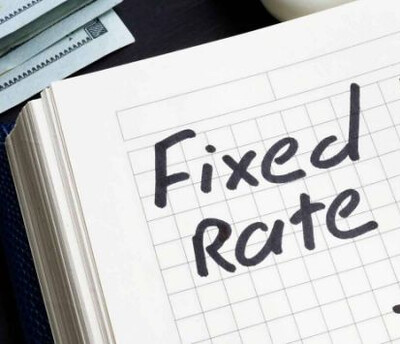
Propane fixed price plan is a pricing option offered by propane gas suppliers for customers who want to lock in a set price for their propane gas usage over a specified period of time, typically a year.
This plan aims to provide stability and predictability in energy costs for the customer, helping them to budget for their energy expenses and avoid the ups and downs of fluctuating propane prices. With a propane fixed price plan, the customer agrees to pay a fixed rate for each gallon of propane they use, regardless of changes in market prices.
If you want to know more if this pricing is right for you, here’s an article to guide you through. Read on…
How Fixed Price Works
Propane fixed price is a pricing model for propane gas where the customer pays a fixed price for a set amount of propane gas, regardless of fluctuations in the market price. In this model, the customer pays a fixed price for propane gas for a specified period of time, typically a year, and the price does not change, even if the market price of propane goes up.
The advantage of this plan is that it provides price stability and predictability for the customer, allowing them to budget for their propane costs. The fixed price also protects the customer from any sudden price spikes that may occur due to market conditions or supply and demand. The customer can lock in the fixed rate by paying in advance or by making monthly payments.
However, it is important to note that while a propane fixed price plan provides price stability, it may also result in the customer paying a higher price than the current market price if the market price drops during the fixed price period. In such cases, the customer would still be obligated to pay the agreed-upon fixed price for their propane.
Its Benefits
The benefits of this plan are:
- Price stability: This plan provides customers with stability and predictability in their propane costs, allowing them to budget and plan more effectively.
- Protection against price spikes: The fixed price protects customers from any sudden price increases due to market conditions or supply and demand.
- Peace of mind: With a fixed price plan, customers can be confident that their propane costs will not change, regardless of any fluctuations in the market.
- Budgeting and forecasting: By paying a fixed price, customers can better forecast their energy expenses and budget accordingly.
- Avoiding surprises: With a fixed price plan, customers can avoid the surprise of large, unexpected propane bills due to market price spikes.
It’s important to keep in mind that while this rate plan provides many benefits, it may also result in the customer paying a higher price than the current market price if the market price drops during the period. In such cases, the customer would still be obligated to pay the agreed-upon fixed rate for their propane.
Its Risks
The risks of plan like this are:
- Higher costs: If market prices decrease during the period, the customer may end up paying more for their propane than they would have if they had gone with a variable price plan.
- Lack of flexibility: while in this plan, customers are locked into the agreed-upon price and cannot take advantage of any market price decreases that may occur.
- Inaccurate forecasting: If the customer’s propane usage changes significantly, this rate may result in them paying more or less than they would have with a variable price plan.
- Missed savings opportunities: If market prices drop significantly during the contracted period, customers who have signed up for this plan will miss out on the opportunity to save money on their propane costs.
- Payment obligations: Customers are obligated to pay the agreed-upon fixed price for their propane, even if market prices decrease, which could result in higher expenses for the customer.
It’s important to carefully consider these risks when deciding whether this rate is the right choice for your propane needs. It may be helpful to review your past propane usage and consider your expected future usage, as well as to compare fixed and variable price options from different suppliers before making a decision.
Duration of Fixed Price Period
A fixed price period for propane is a contract between the customer and the gas supplier, in which the customer agrees to pay contracted price per unit of propane for a specified period of time. This can provide the customer with stability and predictability in their energy costs, as they are protected against fluctuating market prices.
The length of the period can range from a few months to several years, depending on the agreement between the customer and the supplier. Some companies offer seasonal fixed price plans, such as for the winter months when propane usage is typically higher. Other companies may offer rate for a year or multiple years, to provide customers with even greater price stability and budget predictability.
It’s important to note that while the period can provide stability and predictability, it can also limit the customer’s ability to take advantage of market price reductions if they occur during the period. To determine the best option for your specific needs, it’s recommended to carefully consider your usage patterns and budget, and to consult with a propane supplier near you.
Will You Commit to the Propane Fixed Price Offer
Deciding whether to commit to this offer involves weighing the benefits and risks of the offer based on your unique circumstances. You should consider factors such as your budget, your expected propane usage, your tolerance for price uncertainty, and your comfort with the payment obligations associated with this offer. Additionally, you may want to compare fixed and variable price options from different suppliers, and consider your past propane usage, to determine which option is the best fit for you.
Ultimately, the decision whether to commit to a propane fixed price offer should be based on a careful analysis of your individual needs and circumstances.
You can contact a propane company or gas supplier near you and inquire about their fixed price options for propane. You can also ask them about their payment and billing options, as well as the duration of the fixed price agreement.
Is This Plan of Propane Right for You
It depends on several factors, including your personal energy usage, budgeting preferences, and local market conditions. A fixed price plan for propane can provide stability and predictability in terms of the cost of energy, but it also means that you may not benefit from fluctuations in the market prices. If you prefer budget certainty, a fixed price plan may be the right choice for you.
However, if you’re willing to take on a little bit of risk for the potential to save money, a variable price plan may be more suitable. Ultimately, the right choice for you will depend on your individual circumstances and goals.
Recommendations for Consumers Considering This Price of Propane
This option can be a great choice for consumers who want more control over their expenses. However, there are a few things to consider before committing to a fixed-price option.
- Make sure that the price fits within your budget and that you won’t have to make any unexpected sacrifices.
- be aware of any hidden costs that might be associated with the plan, such as taxes, delivery fees, and processing charges.
- Research the provider to make sure that they have a good reputation and that they are offering a fair price.
- Consider the length of the contract, as you may be locked into the fixed-price option for a certain period of time.
By carefully considering these factors, consumers can make an informed decision about whether a fixed-price option is right for them.
To Make a Conclusion
A propane fixed-price option can be a great way for consumers to take control of their expenses and budget their money more effectively. However, it’s important to do your research and understand the terms of the contract before making a commitment. Consider your budget, be aware of any hidden costs, research the provider, and think about the length of the contract. By following these guidelines, you can make an informed decision and feel confident in your choice.

Mike is an experienced propane technician with over 15 years of professional experience in the field. He has dedicated his career to helping customers with their propane needs, from installation to maintenance and repair. Together with Jeremy, he co-founded this website to provide useful information and guidance to customers seeking reliable propane services.



